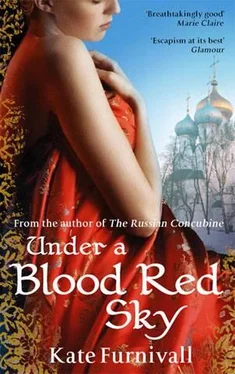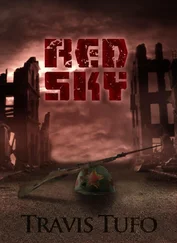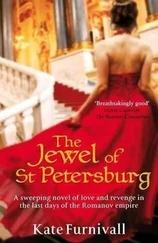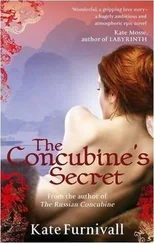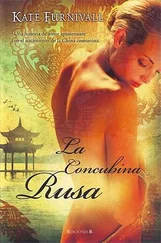‘Yes, Comrade Chairman.’
‘Good.’ He released Pyotr’s shoulder. ‘And what was the second thing you wanted to talk to me about?’
Pyotr hated himself. He no longer cared about the second thing.
‘Well?’ Fomenko urged.
‘It’s the filly,’ Pyotr muttered. ‘The tether rope is too short and the halter too tight.’
‘You have good eyes, young comrade. The filly has thrown a shoe.’ He reached into his pocket, pulled out a fifty kopeck coin and tossed it in the air. The sunshine snatched at it. ‘Here, catch. You’re obviously a bright lad and know something about horses. Take her up to the blacksmith for me.’
Pyotr caught the coin and glanced at Elizaveta Lishnikova. She nodded.
‘Take Anastasia with you,’ she said, and there was a surprising softness in her voice that was usually reserved only for the younger children.
It made his shame worse, knowing she’d heard every word. His cheeks burned. He ran from the adults, unhitched the filly and as he trudged up the street in the dust with Anastasia in tow, he threw her the fifty kopeck coin. ‘You can have it.’
‘Thanks, Pyotr. You’re the best friend in the world.’
Sofia’s eyes opened into darkness. Her brain stalled and almost slid back into the soft safe blankets of sleep but she caught it just in time.
Where were the candles? What happened to the girl?
She sat up. Mistake. The room splintered and lights flashed inside her eyes. She waited until the pieces slotted back together. She was on a bed, fully clothed, her fingertips told her that much. So far, so clear. She took a deep breath.
What else?
She was frightened. A tight ball of barbed wire was knotted in her chest but that was nothing new.
What else?
Her head hurt.
What else?
The darkness. It was changing, breaking down as her eyes grew accustomed to it, into different shades of black and grey. She swung her feet to the floor, aware for the first time that she was not wearing shoes, and stood up. Not good, but not as bad as she expected. She took another breath and headed for the grey. It was a door. Her hands explored strong planks of wood pitted with knots and saw-marks, held shut by a wooden latch on a string. Around the edge of it crept a whisper of daylight. Sofia put her ear to it and listened. No sounds. Just more silence and the thump of her own heartbeat battering her eardrums.
She lifted the latch. It opened on to a low-beamed living room with rough split-timber walls, unpainted, a carved chest in one corner and in the centre a home-built table with two upright chairs. At one end stood the pechka , a large stove, and, more surprisingly, a big maroon armchair turned to face the stove. The rough floor was covered with woven rushes and the air smelled heavily of herbs, which was hardly surprising as bunches of all kinds of dried leaves were pinned around the walls in a fragrant frieze.
More to the point, the room was empty. No girl and no brown spoon. Over to her left was a window that revealed a dusty patch of road outside and next to the window was the door. She ran for it and breathed a sigh of relief as her fingers easily lifted the metal latch and she stepped over the threshold.
‘You’ll need shoes.’
She stopped dead. The voice had come from behind her, a man’s voice. Dimly, like a muted echo from a dream, she recalled hearing the same voice before, murmuring to her with strange unfathomable words while she was unconscious. Slowly she turned. At first, after the scorching brightness of outside, she could make out nothing different in the room, but then a movement drew her attention to the faded maroon chair. There was a face, an upward curve of a gentle mouth, a shock of dense black hair swept straight back and an even blacker pair of eyes in a narrow face. He was watching her.
How had she not noticed him?
‘Don’t you want shoes?’
He spoke quietly. He was leaning round the edge of the armchair, most of him still hidden from view by the upright back of it, though his legs in scuffed brown leather trousers stuck out clearly and his bright yellow sleeve lay along the armrest.
‘Don’t you want shoes?’ he asked again.
She had forgotten her feet were bare. She glanced over her shoulder at the sunlit slope, a tumble of honey-coloured rocks that led up to the forest edge where secrecy and safety beckoned. Run, she told herself, just run . She’d come too far and worked too hard to risk losing her precious freedom now. She had to choose.
‘Yes, I want my shoes.’ Her tongue was dry in her mouth.
‘I’ll fetch them for you.’
He stood and moved away from the chair. He was shorter than she’d realised, not even as tall as herself, and older than his eyes and his hair indicated. Probably fifty, with the kind of skin that was swarthy and lined from years of living outdoors in the eye of the wind, like the traders who travelled up from Kazakhstan with their mountain horses. There was little flesh on his spare frame but his arms looked muscular.
‘Please hurry,’ she urged.
He smiled, the gentle mouth curving more, and he walked over to the oak chest by the wall.
‘Don’t worry,’ he said. ‘I have no weapon hidden here.’
He lifted the lid and extracted a pair of shoes. Slowly, so as not to startle her, he came forward and placed them on the table, then he backed off and stood next to the stove. He was tempting her back in, like you tempt a horse into a stall with an apple. She made her choice and walked back into the izba.
In some subtle way that she couldn’t quite explain, the feel of the room had changed. The smell of herbs was no longer suffocating but refreshing, and the place seemed to possess a kind of enticing peace. Sofia gave her head a sharp shake to clear it and cursed her confusion. Was it the result of the bang on the head or the residue of all that brown liquid still swilling through her veins? She looked at the shoes.
‘Those aren’t mine,’ she said.
‘Yours are worn through. Holes in both soles and tied together with string. I thought you might prefer these.’
He spoke about them as if they were a pack of cheap makhorka tobacco instead of possessions that some would kill for. Well-softened pigskin stitched on to double thickness rubber soles. New shoes. Who on earth could find new shoes these days? And then give them away? But she wasn’t going to argue with him. Instead she strode over to the centre of the room, snatched up the shoes and slipped them on her feet. They fitted perfectly.
‘Thank you,’ she said.
He gave her a warm smile. ‘Enjoy them.’
‘I will.’
‘May they keep you safe.’
‘What?’
‘It seems to me you need help, that’s all.’ His voice was mild.
Sofia blinked, wary of this gentle-mannered little man and nervous of the uncertainty that had settled in her mind. She couldn’t afford uncertainty.
‘How long have I been here?’
‘Two days.’
‘Two days? It feels more like two weeks.’
‘No. It’s only two days.’
‘I was attacked.’
‘Yes, that’s right. My daughter found you stealing our vegetables. ’ It wasn’t an accusation, just a comment on how things were. ‘And you’d stolen an axe, too.’
‘You kept me prisoner.’
There was a silence. The smile had gone and a kind of stiffness altered the way he held his shoulders. Sofia knew she had offended him.
‘I tried to heal you,’ he pointed out quietly.
‘Thank you. I’m grateful.’ She recalled once more the voice murmuring strange words and the touch of cool hands on her burning forehead. ‘Is it your bedroom I’ve been sleeping in?’
‘Yes.’
Читать дальше
